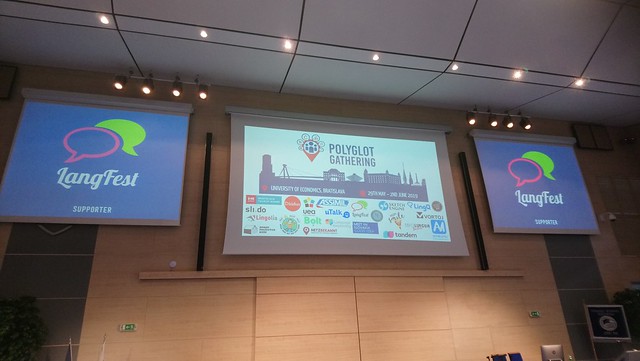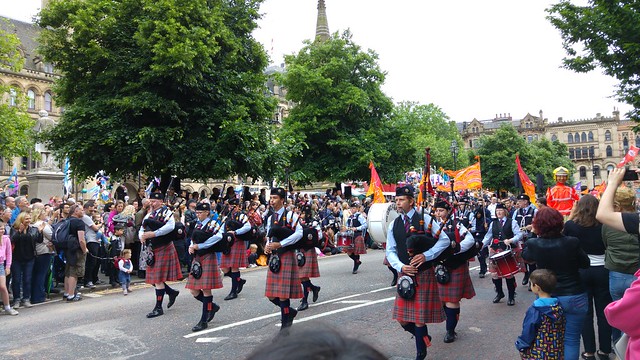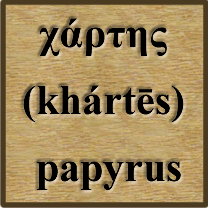Tá mé ag déanamh mo bhealach ag dhul bhealach na farraige ar an bhealach go Dún nan nGall in Éirinn, ca mbeidh mé ag déanamh cursa teanga agus cultur in Oideas Gael in nGleann Cholm Cille. Is fada an bealach é.
I’m finding my way, going by sea on my way to Donegal in Ireland, where I’ll be taking part in an Irish language and culture summer school at Oideas Gael in Glencolumbcille. It’s quite a long way.
I’m just playing with the word bealach here. It means way, road or track, and has various other meanings when used idiomatically.
I started writing this on the ferry from Holyhead to Dublin, but ran out of wifi. I’m now on the bus from Dublin to Donegal Town.
I’ve been to Glencolumbcille for a week or two every summer since 2005, and always have a great time. I get speak and sing lots of Irish there, and usually have opportunities to practise other languages as well.








